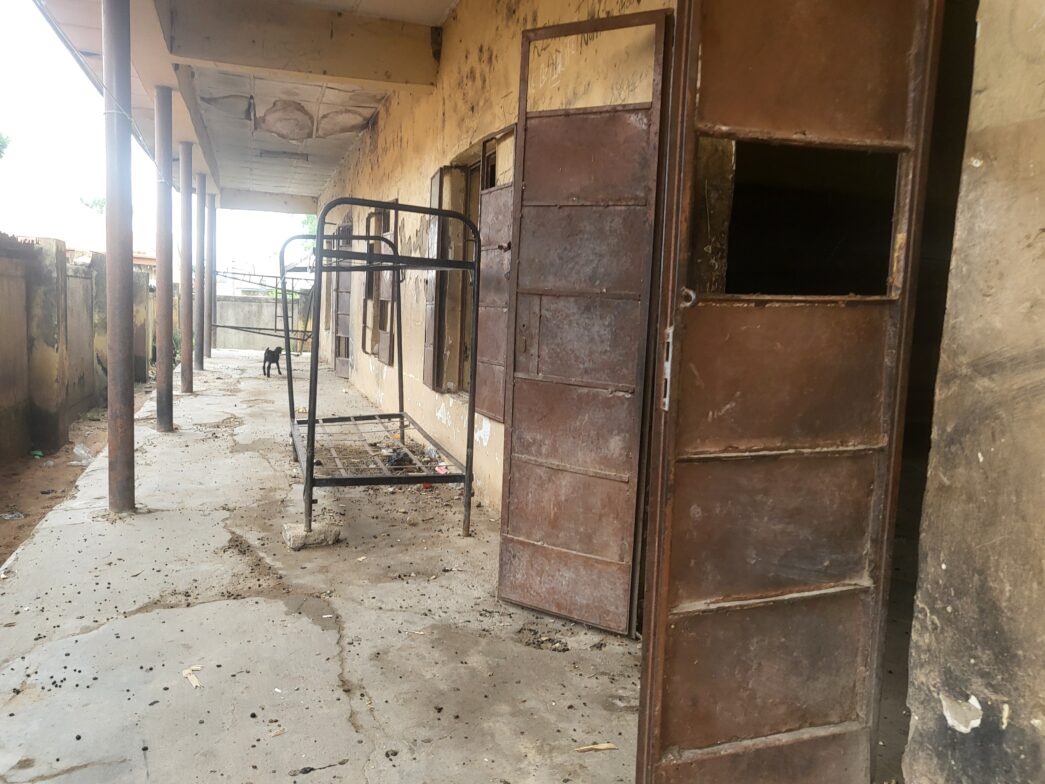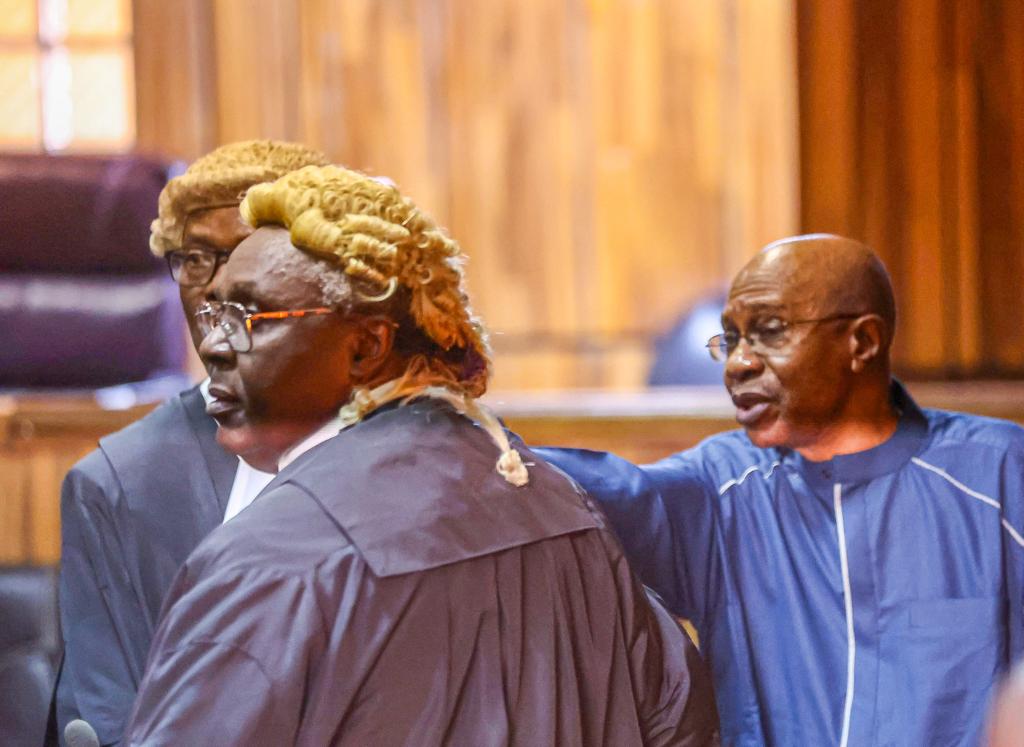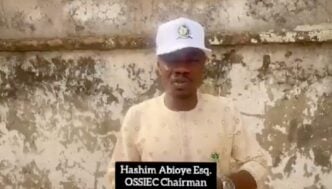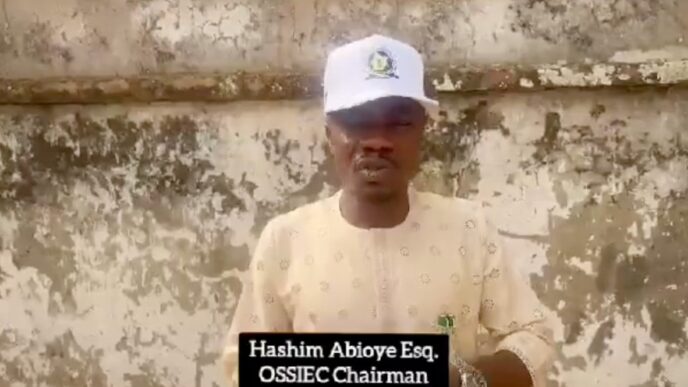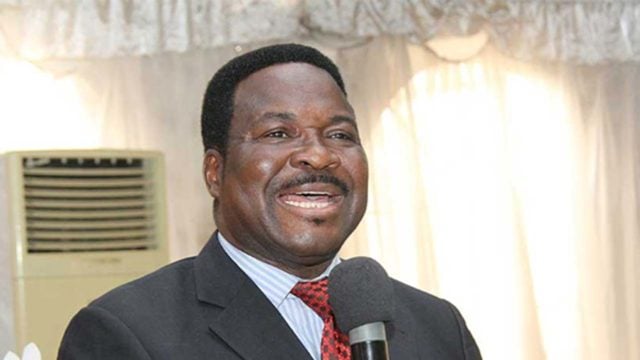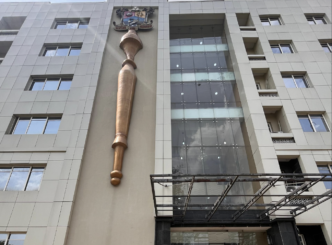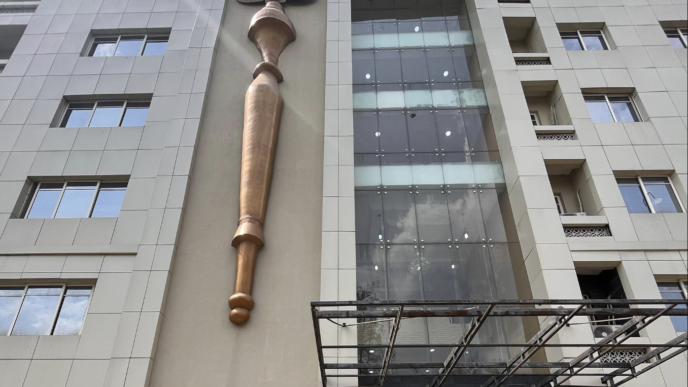Dilapidated hostel at Special Education Centre in Jada, Adamawa state
At 25 years old, Rabiatu Umar had just begun primary school. She sat quietly in the classroom, flanked by one of her classmates. Her neatly draped hijab, paired with a white uniform and orange trousers, set her apart from her peers. Until three years ago, she could see all things bright and beautiful.
For a long time, Umar has been hopeful for a chance at education, despite her father’s insistence that female children had no business in classrooms. But things became worse for her in 2021 when she visited the Federal Medical Centre in Birnin Kebbi, the state capital of Kebbi state, and she was diagnosed with optic nerve damage. By then, she had completely lost her vision, a crevasse the ophthalmologist said was irreversible.

Despite the setback, Umar and her mother convinced her father to let her attend school. But she didn’t get the regular school she had longed for, but an institution for people with special needs owing to her condition.
Unfortunately, the Kebbi State School for Special Needs (KSSFSN) falls short of the amenities needed to care for and support people like Umar.
Advertisement
Once a street vendor in Birnin-Kebbi with suitors lined up and requesting her hand in marriage, Umar now spends her nights on a hard iron bunk and relies on a walking stick to move around.
The situation at the institution is crushing and unnerving. But because Umar and her colleagues desire to learn, they remain in school in the hope that the government will someday remember them and fix the perennial problems — decay, safety risks, and dilapidation structures — employ qualified teaching staff, and provide them with the required resources and learning aids.
Many of these pupils’ dreams of education are constantly threatened by the harsh conditions of the facility meant to nurture them.
Advertisement
The dire conditions under which students with special needs learn in KSSFSN are not uncommon. It cuts across the entire country. This was TheCable’s findings across seven other states — Adamawa, Anambra, Ondo, Delta, Cross River, Nasarawa, and Kwara.
According to the United Nations Educational, Scientific and Cultural Organization (UNESCO), there are over 10.5 million out-of-school children in Nigeria with 5 to 7 million of them with disabilities.
UNESCO, World Bank and World Health Organisation (WHO) say 80–90 per cent of people with disabilities in developing countries do not have access to basic needs, including education.
Nigeria is a signatory of the UN Convention on the Rights of Persons with Disabilities, Article 24 of which provides that all schools must be inclusive of and accessible to all children, including those with disabilities. Nigeria has also adopted the sustainable development goals (SDGs), including Goal 4, which aims to ensure that all children, including those with disabilities, have access to quality, effective education by 2030. The National Policy on Education reinforces this by mandating inclusive education for all children.
Advertisement
Despite these policies, most primary and secondary schools in Nigeria are not designed to accommodate children with disabilities. As a result, their education is often limited to a small number of special schools, which are generally understaffed, poorly equipped, and rely on outdated resources.
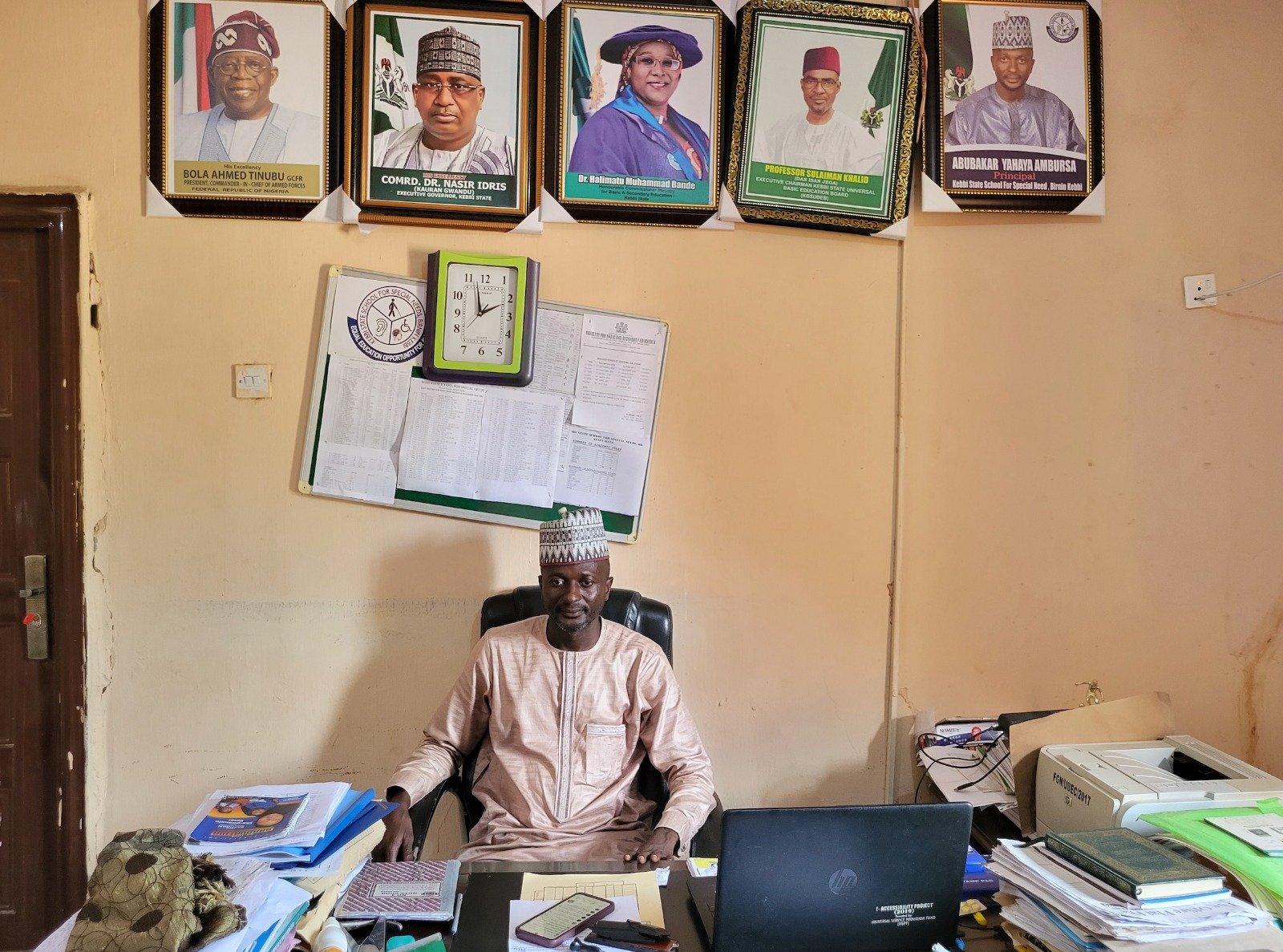
Situated along Birnin Kebbi–Argungu road, KSSFSN is a critical lifeline for students with a range of needs, including visually impaired, hearing loss, physical disability and intellectual disabilities. Established in August 1992, it is the only school for special children across 21 LGAs in the state. For parents desiring to give their special kids a chance at formal education, this means facing the heartbreaking reality of sending them to the state capital no matter the distance.
Fifteen years after the creation of the primary school, the state government established a junior secondary section in 2007 and a senior secondary in 2013.
Abubakar Ambursa, the school’s principal, said it became necessary to establish a secondary section because there was no “provision for them (children with disabilities) to go to the regular schools to continue their studies after primary school.”
Advertisement
In line with policies around inclusive education, the school also allows regular students without any disability.
WITH N550,000 MONTHLY BUDGET, KSSFSN IS OVERBURDENED AND UNDER-RESOURCED
Advertisement
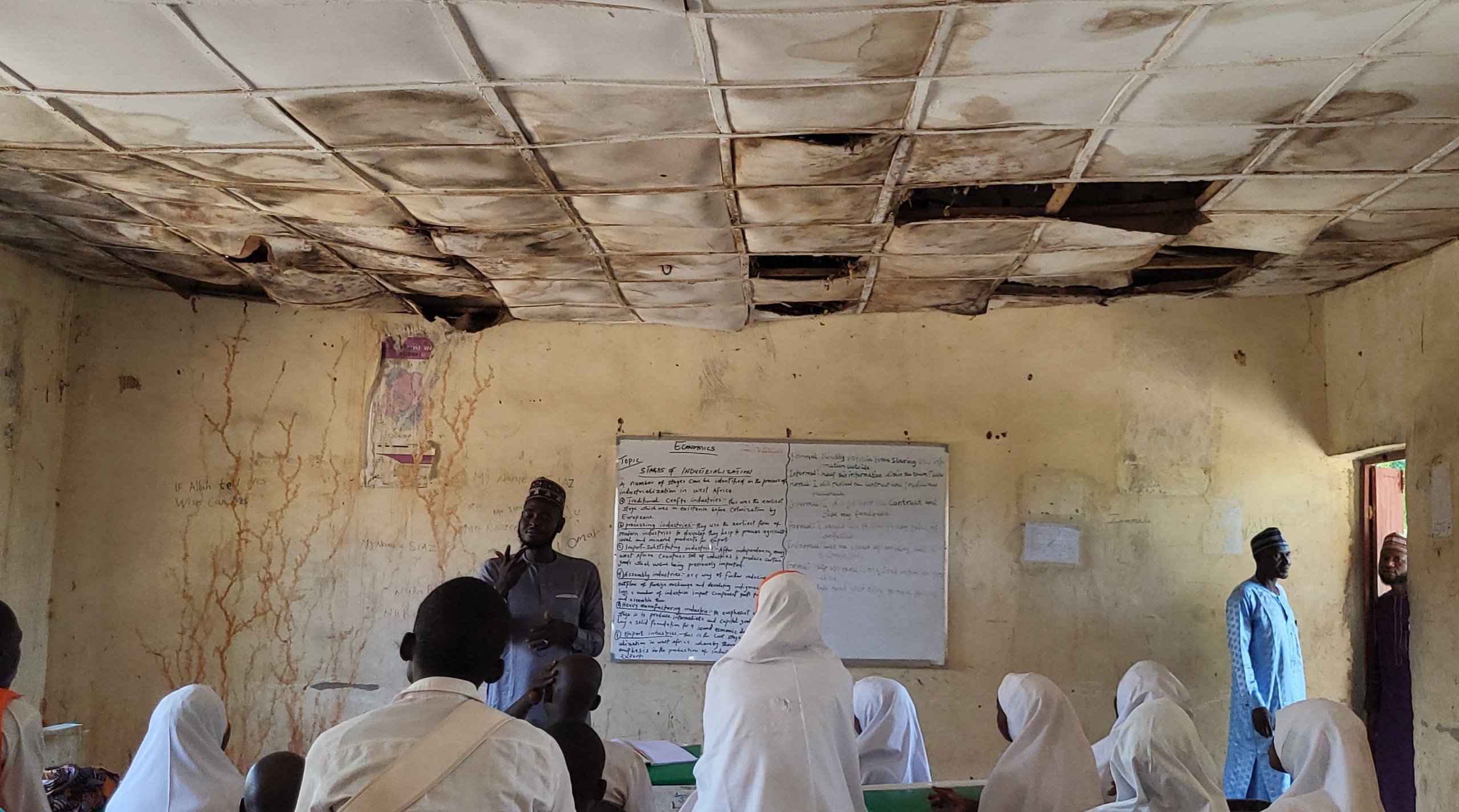
The institution is grossly overburdened and under-resourced as the only special needs school serving Kebbi and neighbouring states.
The school, which operates both day and boarding facilities for male and female students, currently accommodates 656 children, of which 90 per cent are live-in students. Despite the high number of students, the school has only 40 teachers and 10 non-teaching staff members. That leaves a ratio of one teacher to 16 students, hindering the close monitoring and specialised care that the students need.
Advertisement
The school runs on a monthly budgetary allocation of N550,000. This sum is expected to cover feeding, healthcare, salaries, educational materials and other running costs. This translates to about N838 per student each month.
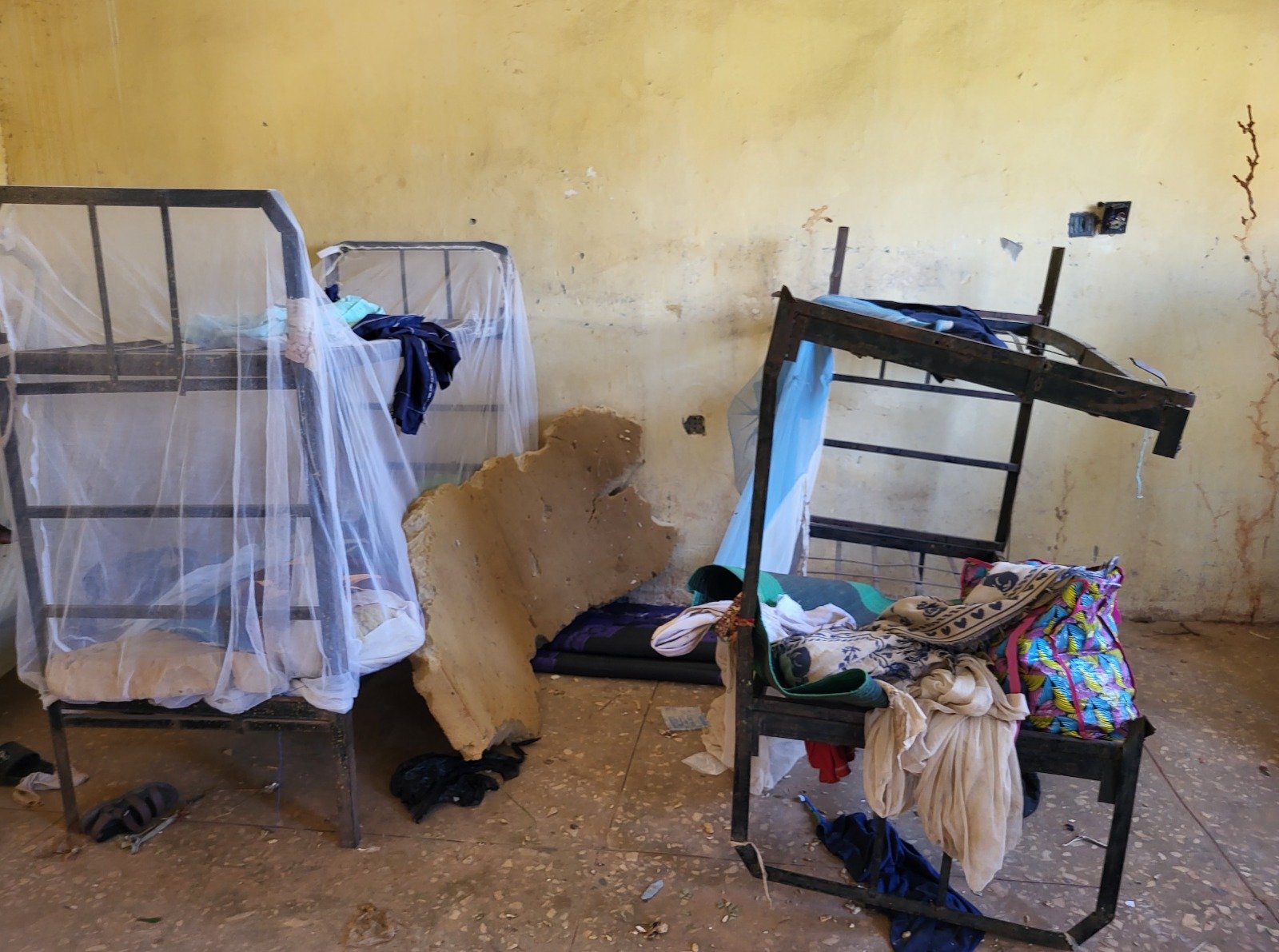
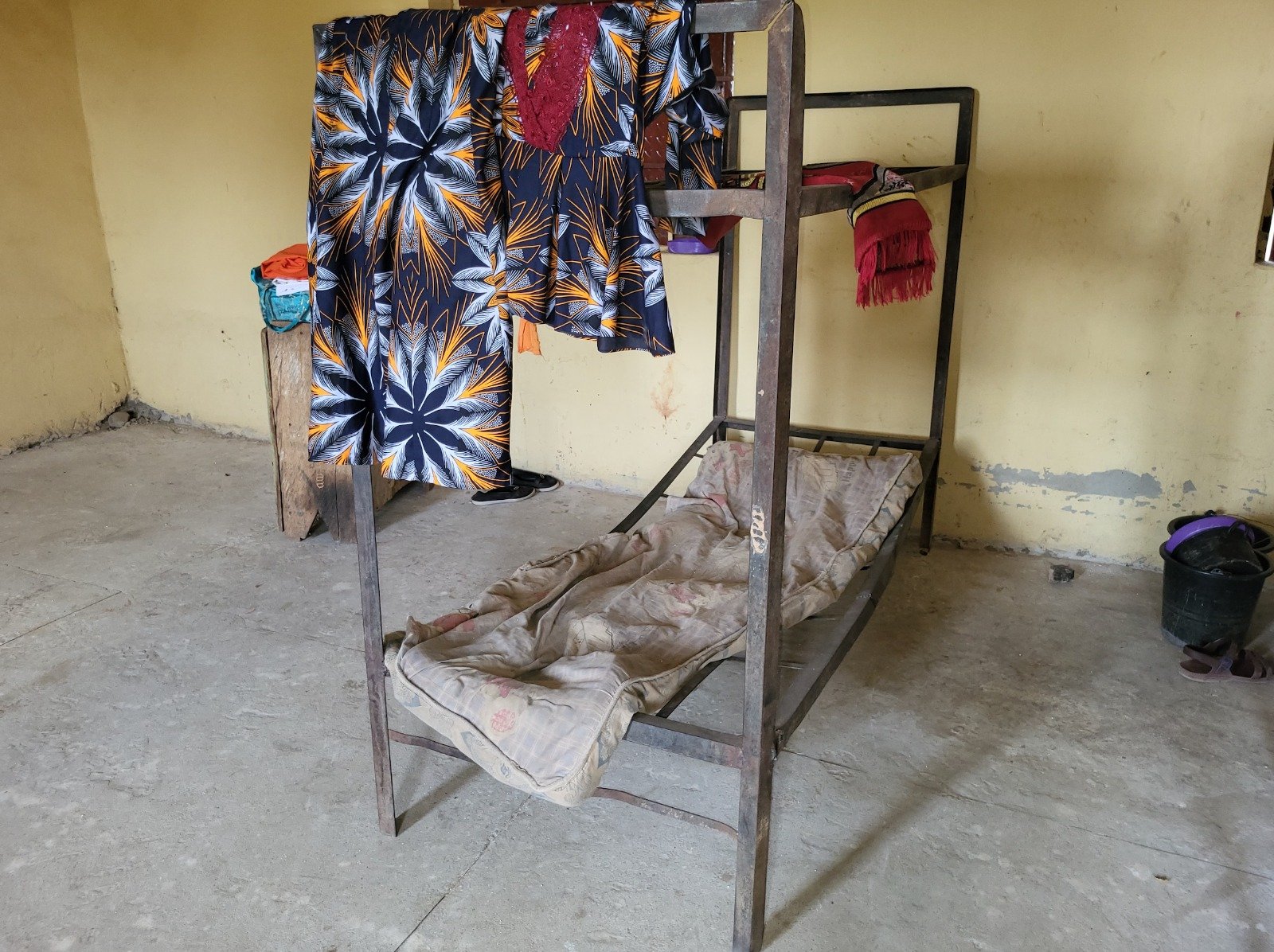
A tour of the school’s facilities reveals the extent of the challenges. Any visitor entering the girls’ hostel is ushered into an unholy alliance of odour from unwashed bodies, clothes and toilets — all evidence of the poor maintenance of the hostel.
Advertisement
The overworked matron does her best, but her age and the overwhelming demands mean children often go without the attention they need. Without custodial staff, the students double as sanitation workers responsible for cleaning the premises and trimming overgrown grasses — a physically demanding task daunting for physically disabled persons.
NO HEARING AIDS, CRUTCHES, SLATES
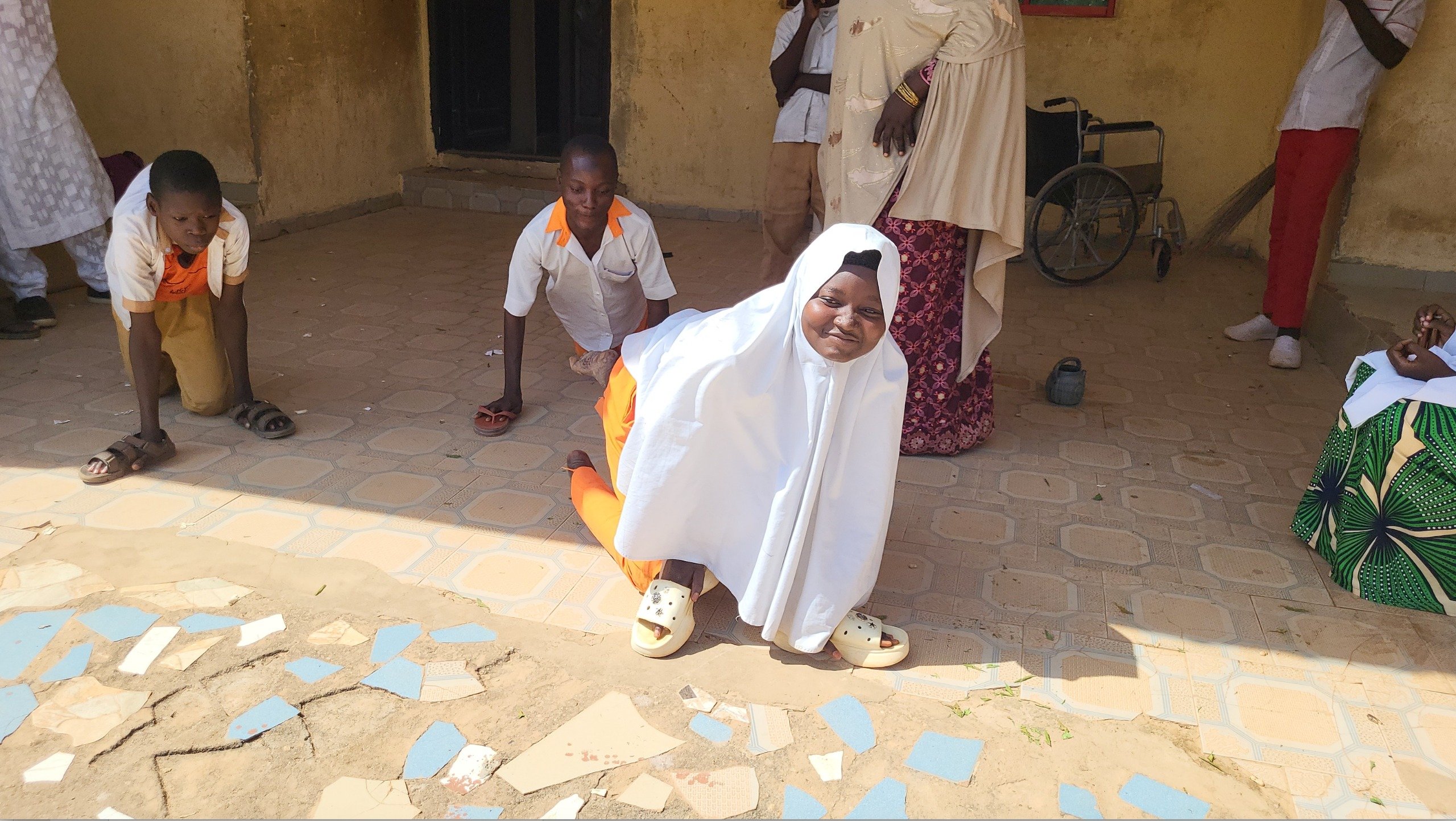
Asmau Ibrahim, 16, crawls around the school using her Dunlop shoe as a protective layer between her palms and the floor. Her knees drag along the ground, unprotected and playing the roles of her feet.
The JSS 2 student is one of the many students who crawl on their hands and knees due to a lack of crutches. Their experience is far worse during the rainy season when the wet ground is slippery.
According to Ambursa, the principal, basic needs such as hearing aids, white canes for the blind, and learning tools like slates and stylus and other assistive technologies are in critically short supply in the school, depriving many students of crucial tools they need for learning.
“I’m bothered that I don’t have something I can use to move around. Although they brought some before, they are damaged,” Ibrahim said in the Hausa language commonly spoken by the students. “It’s painful moving around like this on my hands and knees. I sometimes get rashes on my knees.”
The classrooms and other facilities are not disability-friendly. High pavements and inaccessible entrances increase the risk of injury, particularly for visually impaired students.
The classrooms are also in a state of disrepair. Ceilings of old asbestos panels are severely damaged, with water-soaked, sagging sections that leave the building exposed to the elements. Cracked walls, broken doors, and unstable desks and chairs add to the inconducive learning environment. The classrooms also had no light fixtures or fans.
When school activities are over for the day, the students retire to their rooms hoping for a restful night. But instead of soft, inviting beds to soothe their sore bodies, they sleep on hard metal bunks that are mostly rusted and worn out. Many students lack the basic comfort of a mattress. These essential bedding items are either unavailable or have been reduced to a thin layer of fabric providing minimal comfort or support.
Like Umar, those whose parents cannot afford to buy a mattress for them have to make do with mats or sleep on the cold, hard floor.
POOR HEALTHCARE FACILITIES, INSECURITY
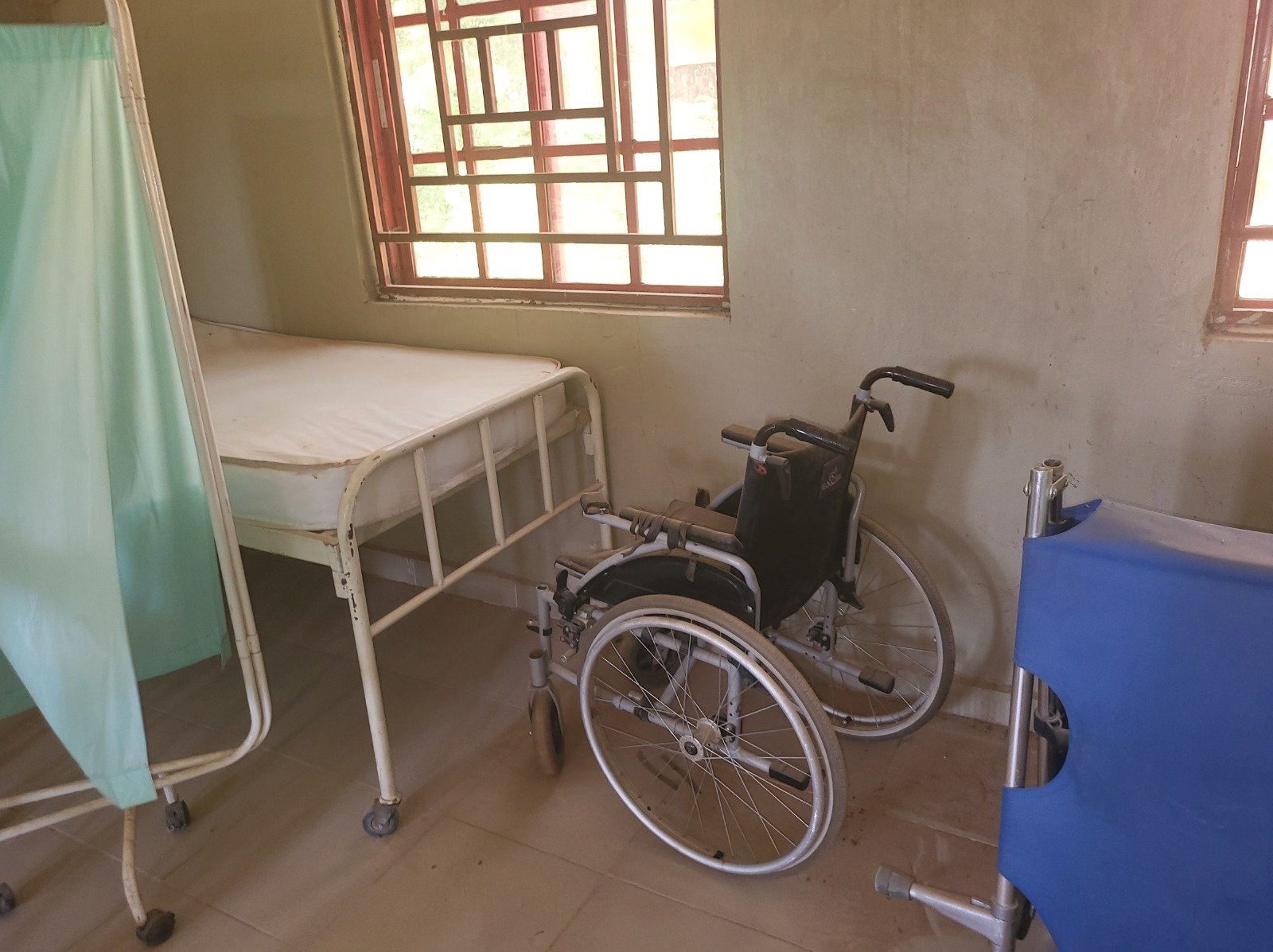
In a harrowing incident in March 2023, a student narrowly escaped death after being bitten by a venomous snake. The school is ill-equipped to handle such emergencies. This forced the principal to rush back from his home – over 10 kilometres away — to transport the child to the hospital.
Umar Jantullu, the sole health practitioner at the school, said on average, he attends to 15-20 students daily, and that the principal bears most of the cost incurred in providing basic healthcare.
“The day the child was bitten by a snake, it was the principal who paid over fifty-something thousand for injections. The doctor wrote down about six different injections and each one cost N10,000,” Jantullu said.
“We don’t have anyone helping these people with medicines in any way except the school authority. I know our principal brings money from his pocket to buy medicine for this department.”
While the general hospital in Zauro offers free medical care to the students courtesy of the chief nursing officer, the principal is responsible for covering costs at other hospitals.
Where the principal’s vehicle is unavailable, in dire situations, students with medical emergencies are often transported to the hospital on a motorcycle.
For Abdullahi Umar, allowing his son, 13-year-old Mustapha, to live on the school premises is not a risk he is willing to take. Although Mustapha was born without a disability, his father noticed he no longer responded to calls and sounds when he was two years old after falling sick with measles. After several hospital visits, Mustapha was eventually diagnosed with hearing and speech impairment at age six.
Determined to secure a good future for his son, Umar enrolled Mustapha in the school for special needs. However, security concerns have prompted Umar, a commercial motorcyclist, to take his child to school daily. Despite the convenience of a boarding school, he prefers to drop off and pick up his son, enduring a journey of approximately 22km, to avoid the risk of potential kidnappings.
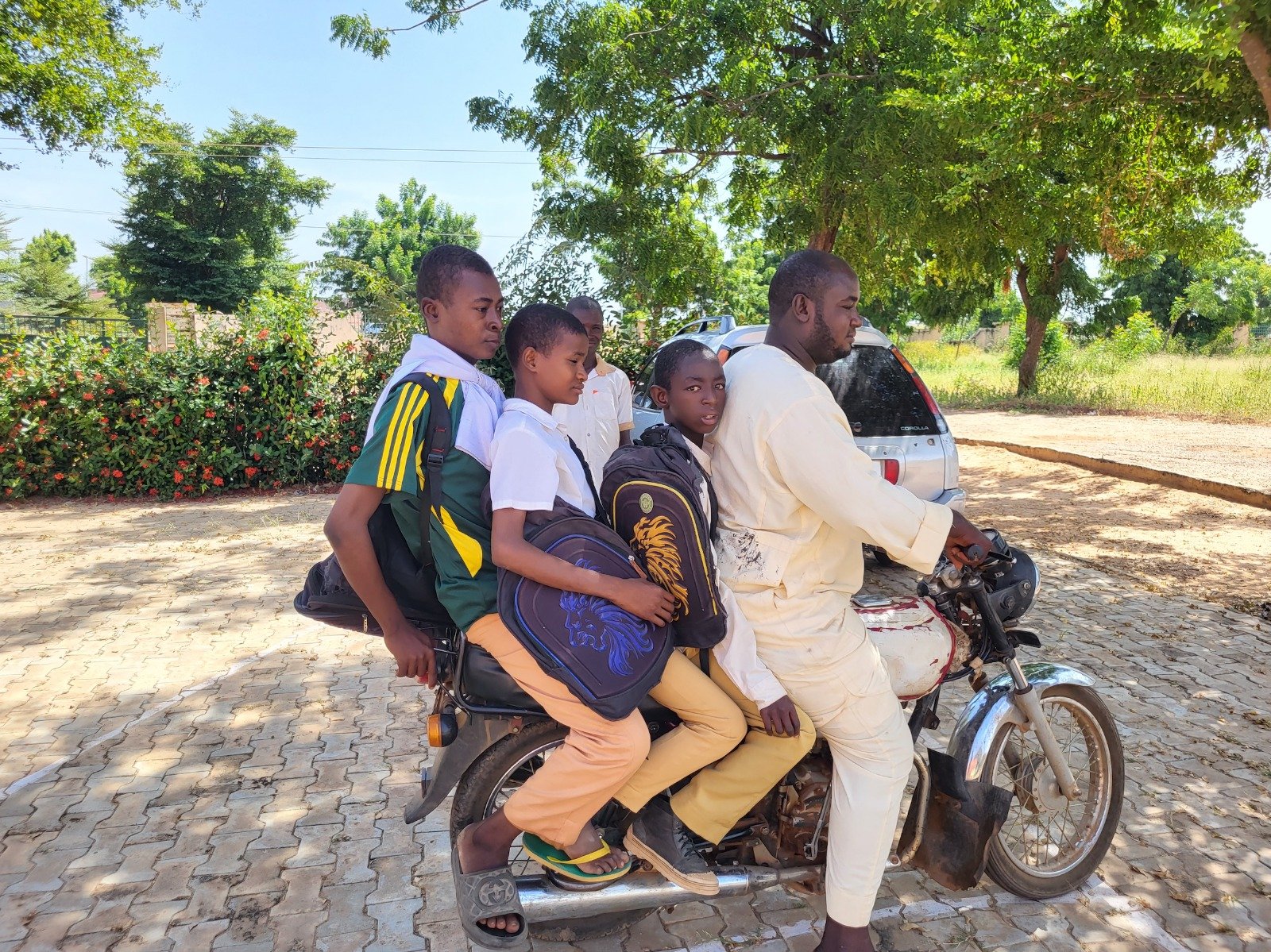
“I am satisfied with him being in day school because we are in an era of insecurity. I visited the school and decided that the school environment was not secure or healthy enough. My mind was not settled,” he said.
TheCable observed that the school lacks adequate security measures. With no security guard stationed at the gate, students can freely enter and exit the premises without proper supervision.
Moreover, severe erosion has damaged parts of the school, including the playground and the perimeter fence. This poses significant safety risks and security vulnerabilities to the students. Umar’s fear is not unfounded. Several schools in the north, and Kebbi state, have been targeted by gunmen in recent years.
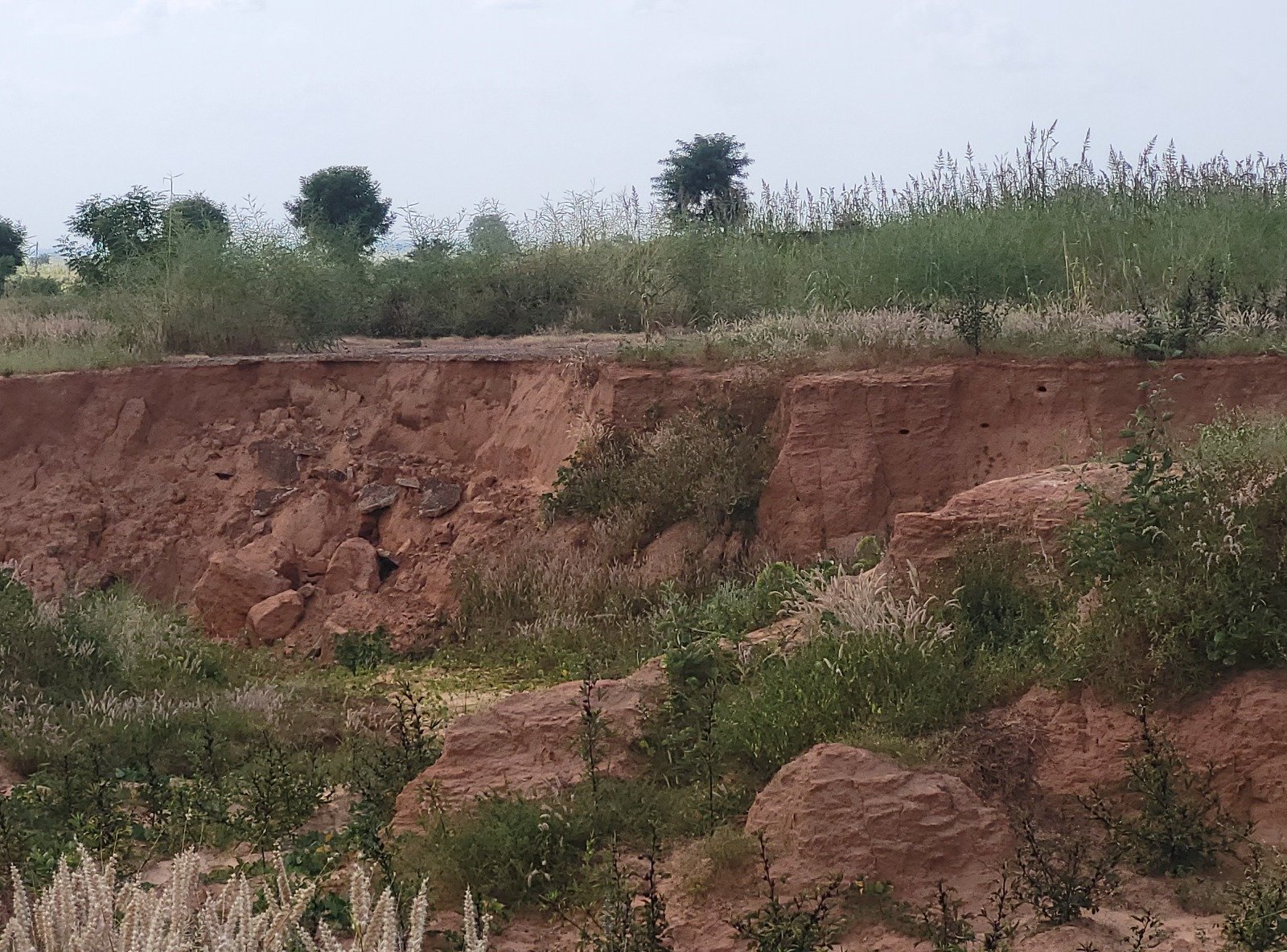
In April 2014, the abduction of 276 schoolgirls by Boko Haram from a secondary school in Chibok, Borno State, drew global attention and sparked the #BringBackOurGirls movement.
Since the dreadful Chibok abductions, at least 1,500 students have been kidnapped, with some held captive for a lengthy period. In February 2018, terrorists stormed Government Girls’ Science and Technical College (GGSTC) Dapchi in Yobe state and kidnapped 110 schoolgirls.
Two years later, the terrorist group reconvened at the Government Girls Science Secondary School in Jangebe, Zamfara state and took away 317 students. The majority of them were girls.
In an attack on Federal Government College, Birnin Yauri, Kebbi state, over 100 students were abducted. When some of the students were released, the terrorists kept 11 girls in their camp as “wives”. Some of them also had children for their abductors whom they were forced to marry.
Data by Save the Children stated that from April 2014 to December 2022, at least 1,683 children were kidnapped in multiple incidents, with over 180 killed and nearly 90 injured in attacks on schools.
SHORTAGE OF QUALIFIED TEACHERS
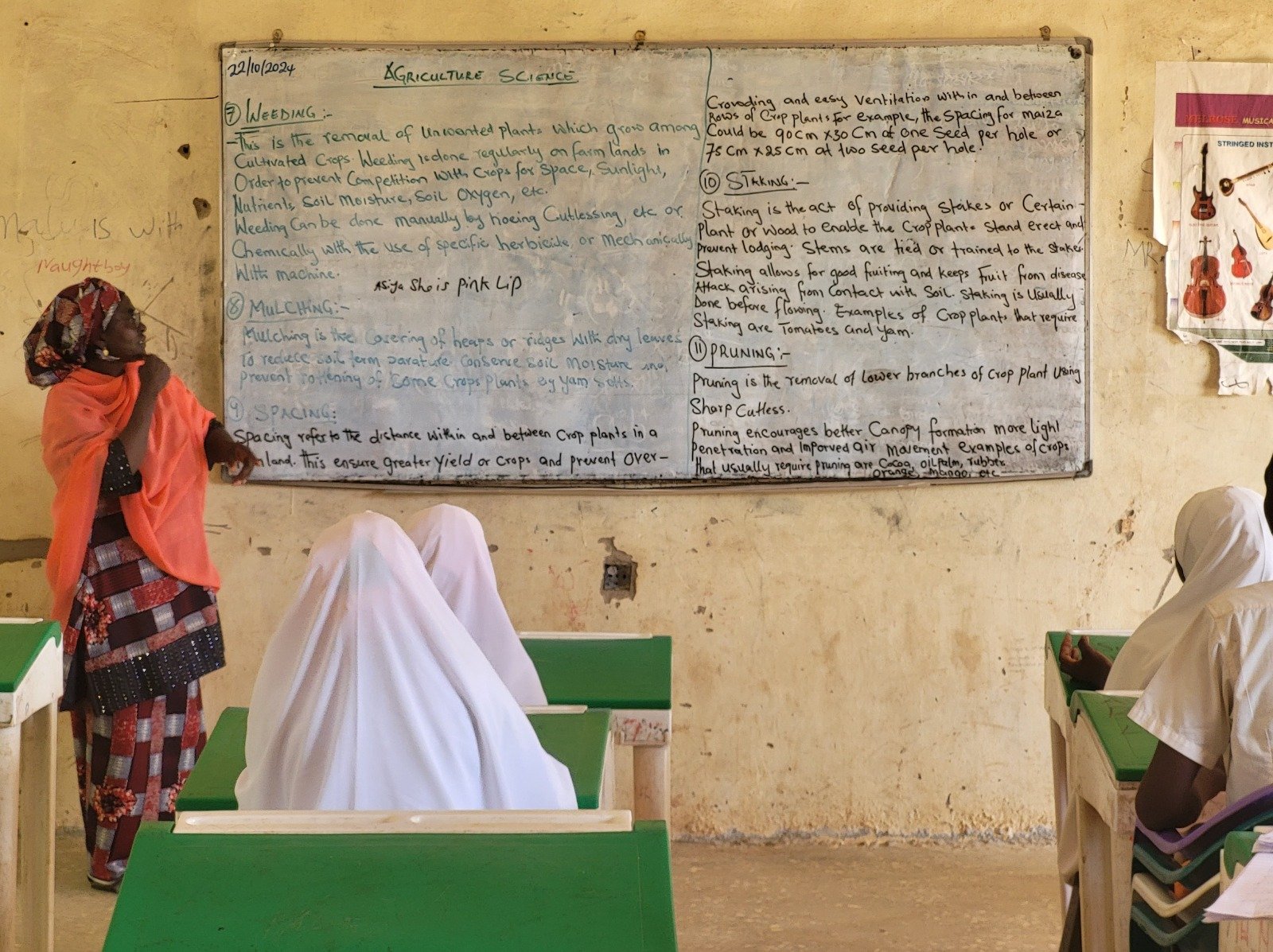
Aminu Abubakar, a visually impaired teacher in the school said whenever new teachers are posted there, some of them reject it. He added that the existing teachers train those who agree to stay
Out of the 40 teachers in the school, some are persons with one or multiple disabilities. Many of them go the extra mile to learn how to communicate with and care for these children with special needs.
Ambursa, the principal, said he had no experience in special education when he was posted to the school.
“I was taught introduction to special education when I did NCE. It was when I got posted here that I developed an interest in working with special children. So, that was what motivated me to go further in my education,” he said.
However, he noted that the Universal Basic Education Commission (UBEC) organises an annual workshop for selected teachers across regions where they are trained on inclusive education principles, ideologies, and implementation processes.
According to UBEC, over N11.67 billion was spent on special needs education between 2005 and 2021 – with Kebbi getting N299,117 million.
IN ADAMAWA, STUDENTS AVOID SCHOOL DUE TO LACK OF MEALS
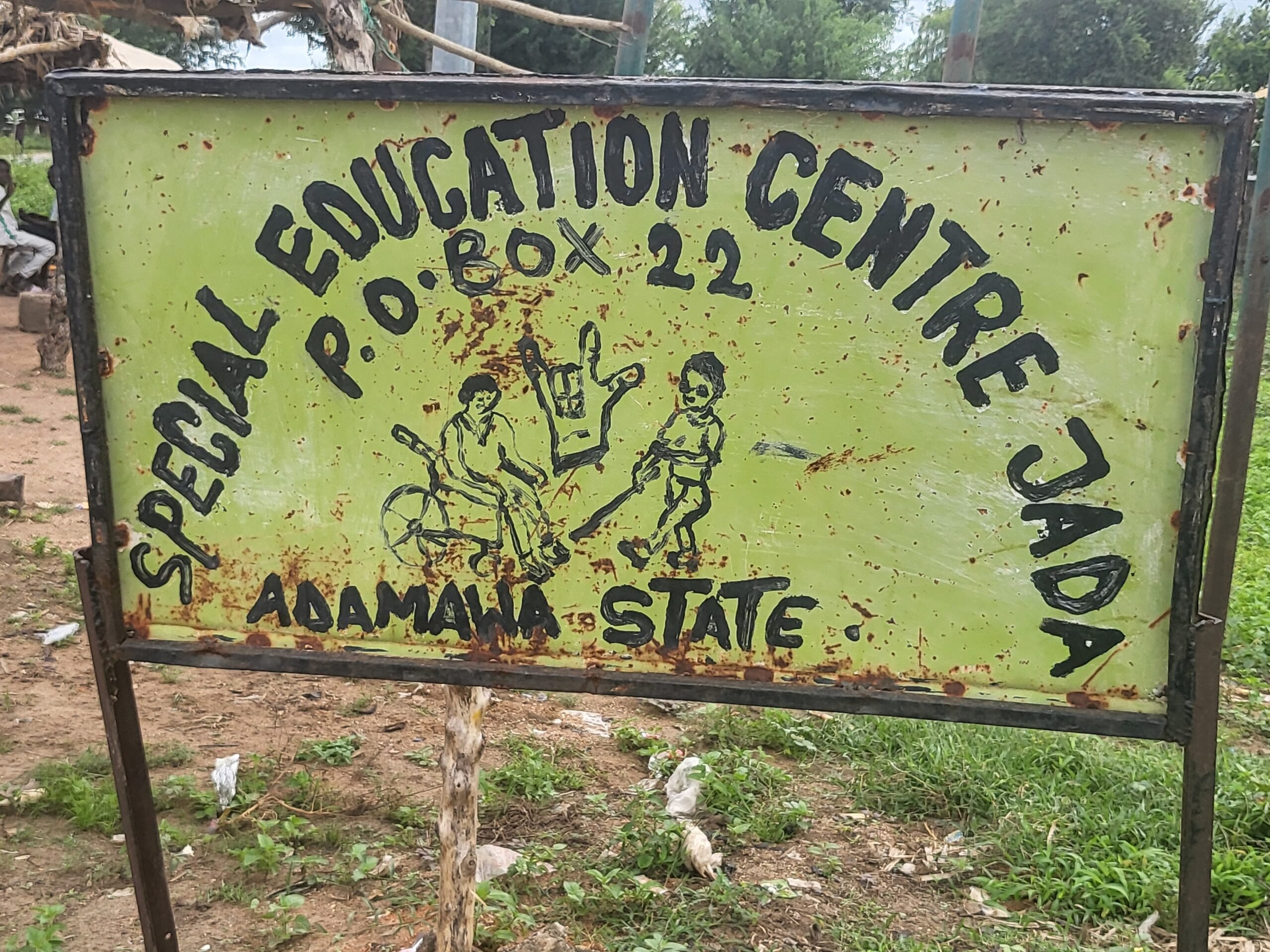
Students of the Special Education Centre in Jada, Adamawa state, are not keen on resuming school because of the poor feeding situation in the institution.
Established in 1981, the school is burdened with crumbling structures and a broken perimeter fence, leaving boarding students vulnerable to harsh weather conditions and the lurking dangers of an unsecured environment.
The school is located in the north-eastern part of the country, close to the Cameroonian border. In Jada, poor infrastructure is discouraging special needs students from pursuing an education, increasing the number of out-of-school children in the country. The students and teachers are facing a myriad of challenges, including insufficient provision of meals for students.
The assistant head teacher of the school, who identified himself as Philip, said the monthly budget is not enough to take care of the students’ feeding.
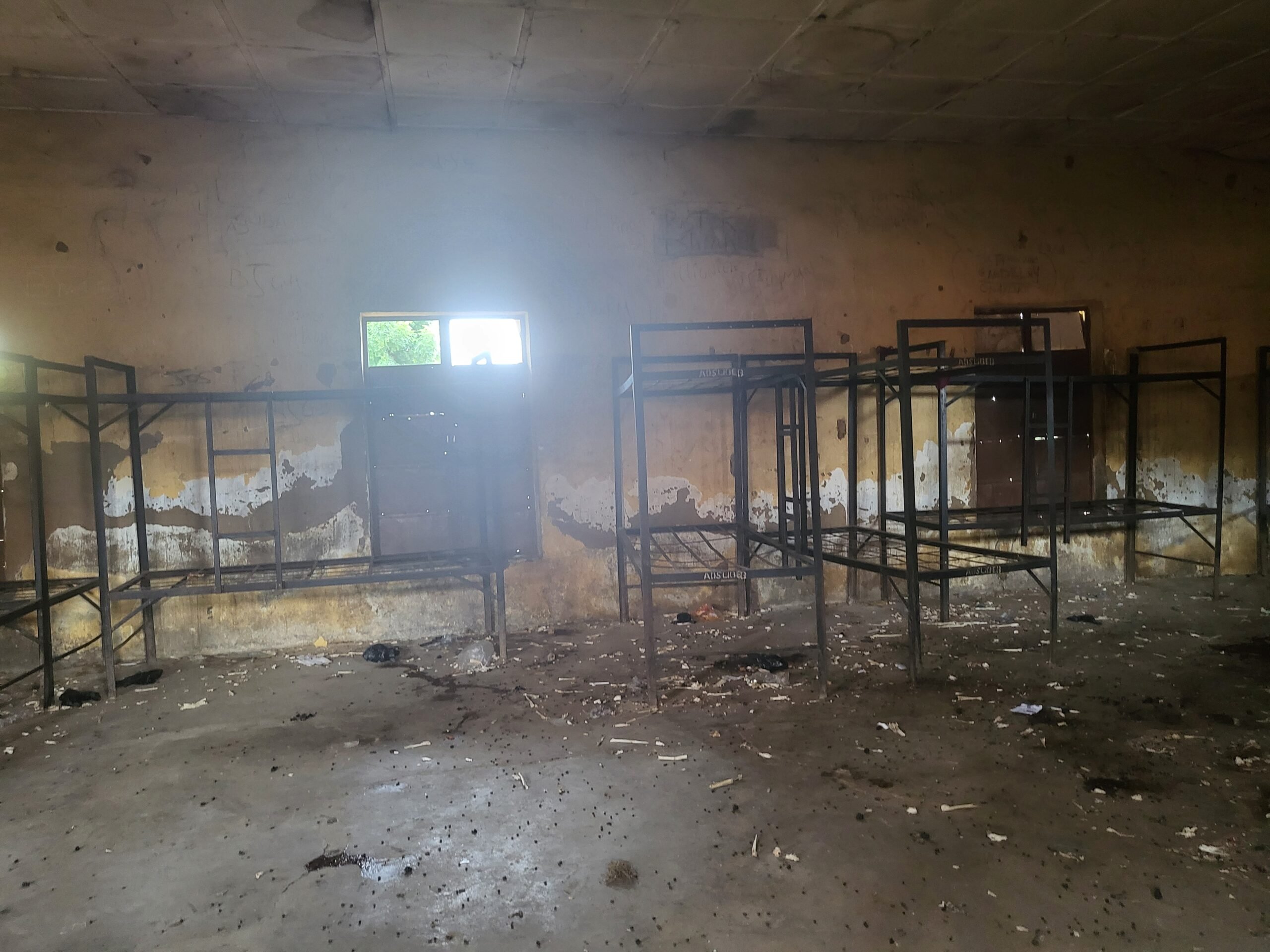
Philip said the students are only fed twice a day.
“Honestly, the feeding is too poor. In this era, in the primary section, can N300,000 cater to children? We have little children, some are eight and 10 years old. Some are below eight. The N300,000 is for a month,” he said.
“That is why many children run away from school because of the poor feeding. If they come, they won’t get enough food. If the school opens today, and they start feeding well, you will see children. But there is nothing to feed these children now.”
The teacher said the school has complained to the relevant authorities but nothing has been done.
Philip said he cannot remember the last time he was trained to enhance his career as a teacher.
“Teachers with hearing disabilities are the only ones going for workshops and training. I can’t remember the last time I went for training,” he said.
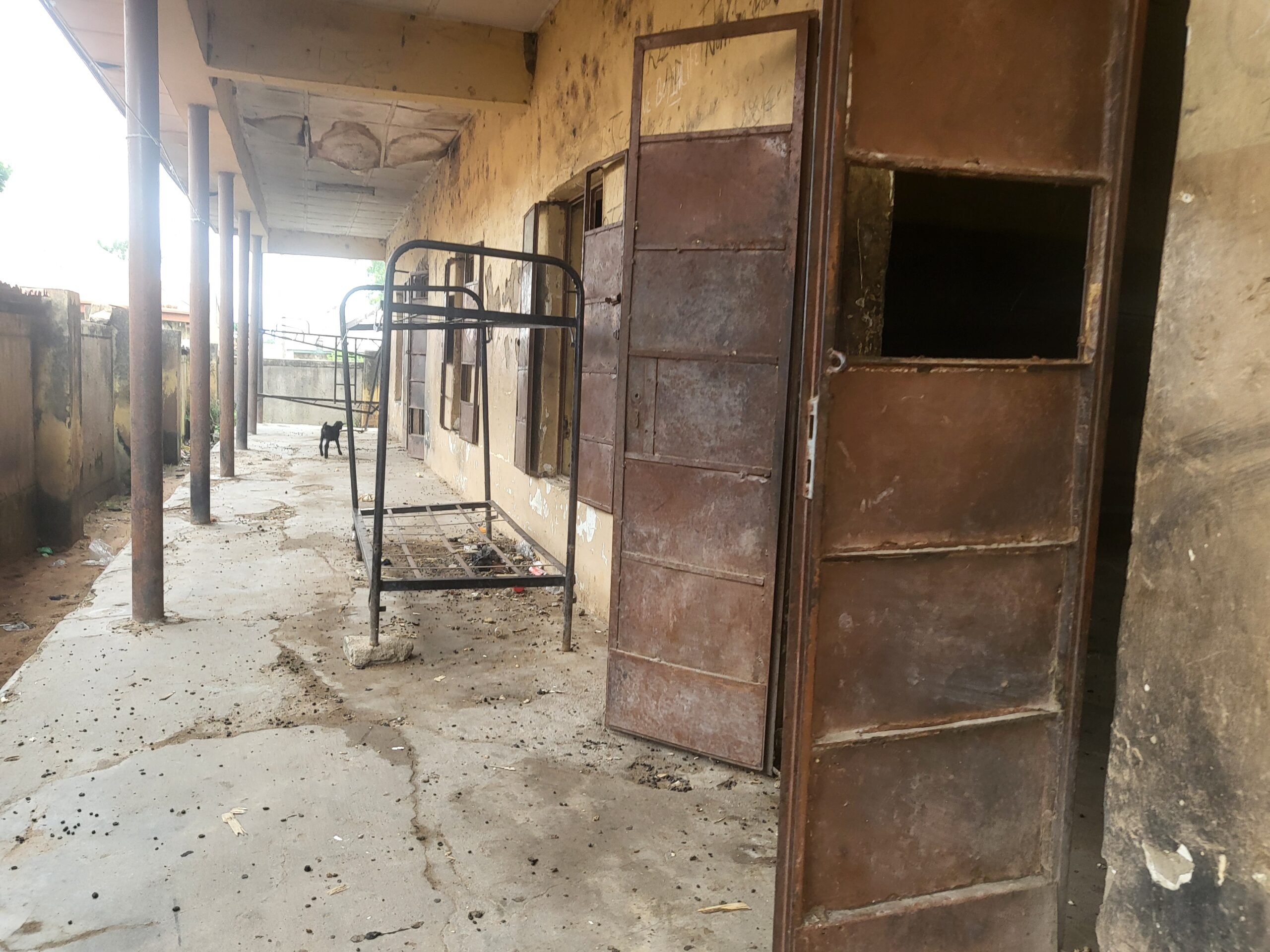
TheCable observed that the school hostels did not have toilets. “They do their business in the bush,” a teacher, who did not want to be named, said.
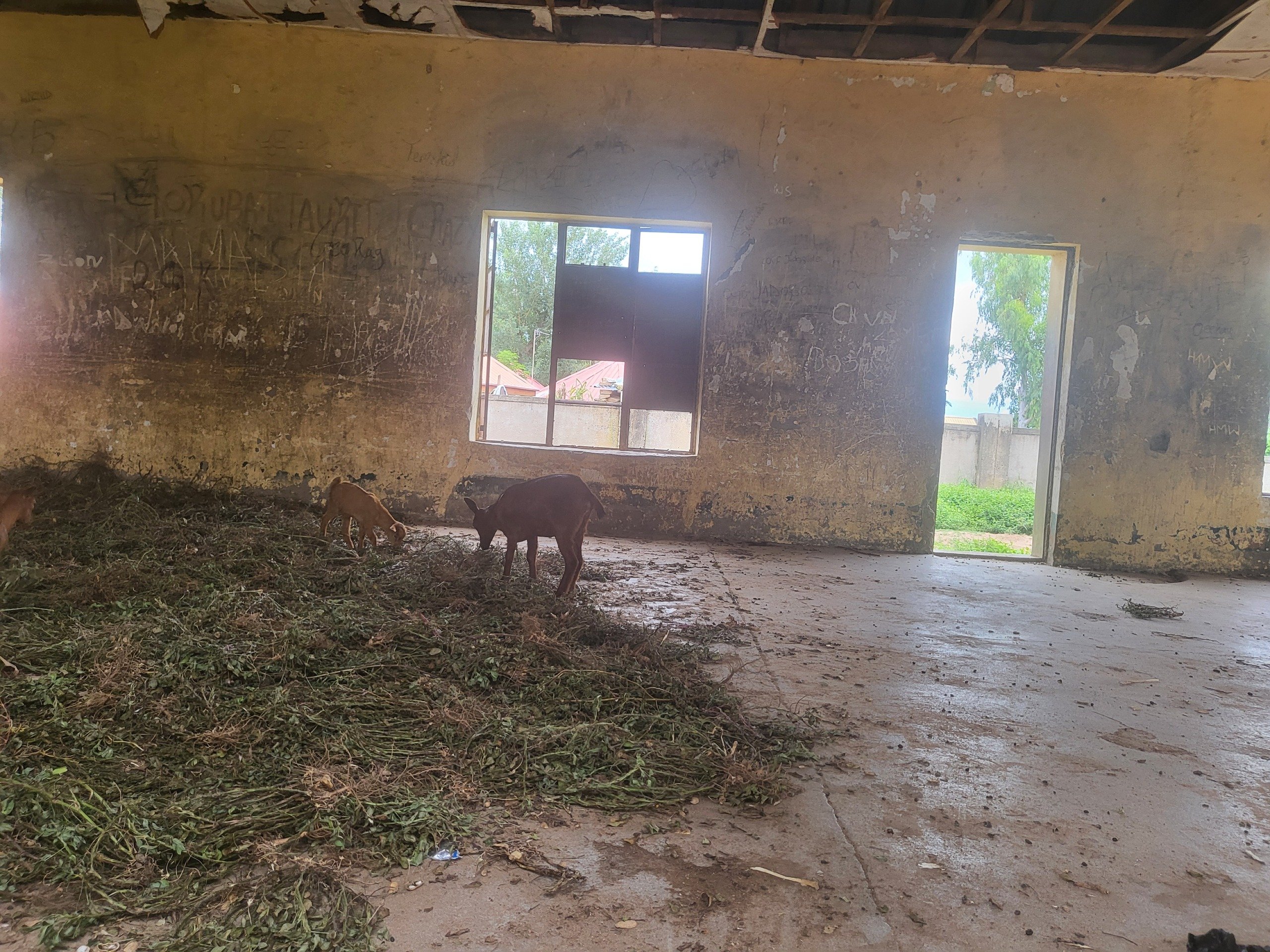
There were broken window panes, doors, and bunks in bad shape and the hostels were littered with goat excrement, owing to the unhindered access the animals had to rooms without locks. Some of the classrooms were used to stockpile hay to feed the goats.
IN ANAMBRA, FEMALE STUDENTS ARE NOT SAFE
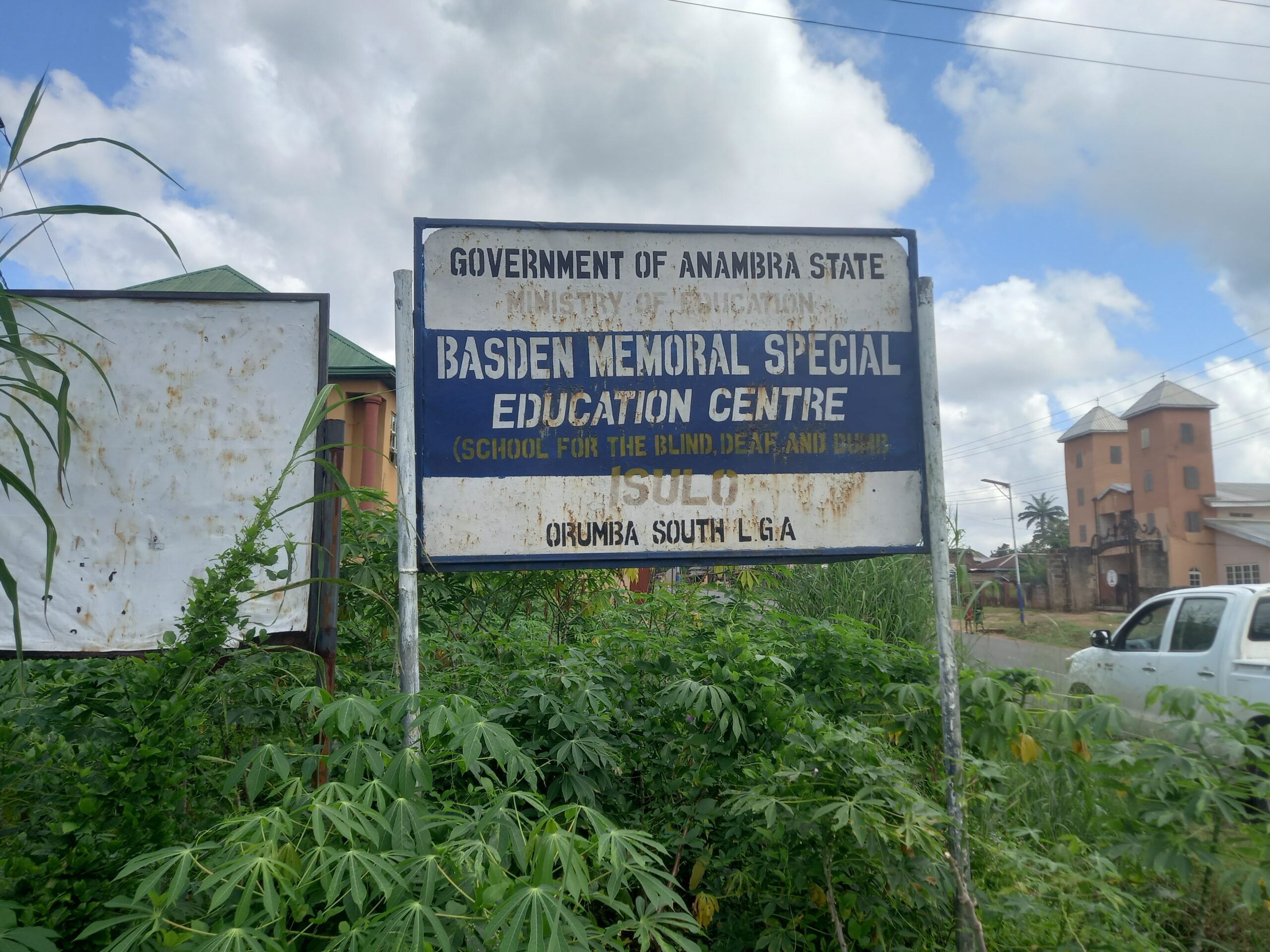
Deep in the rural heart of Anambra state lies another school that embodies both resilience and despair.
The Basden Memorial Special Education Centre, a boarding school for children with special needs, struggles to provide a safe and dignifying environment for its vulnerable students.
Located in Isulo, Orumba south, the school’s crumbling infrastructure tells the story of years of neglect. Like a leper’s shanty on the outskirts of town, Basden is surrounded by a large expanse of uncultivated land.
A mortuary is built just a few yards away from the school gate. Inside the school, dilapidated buildings, once intended as staff quarters, now stand as a testament to abandonment.
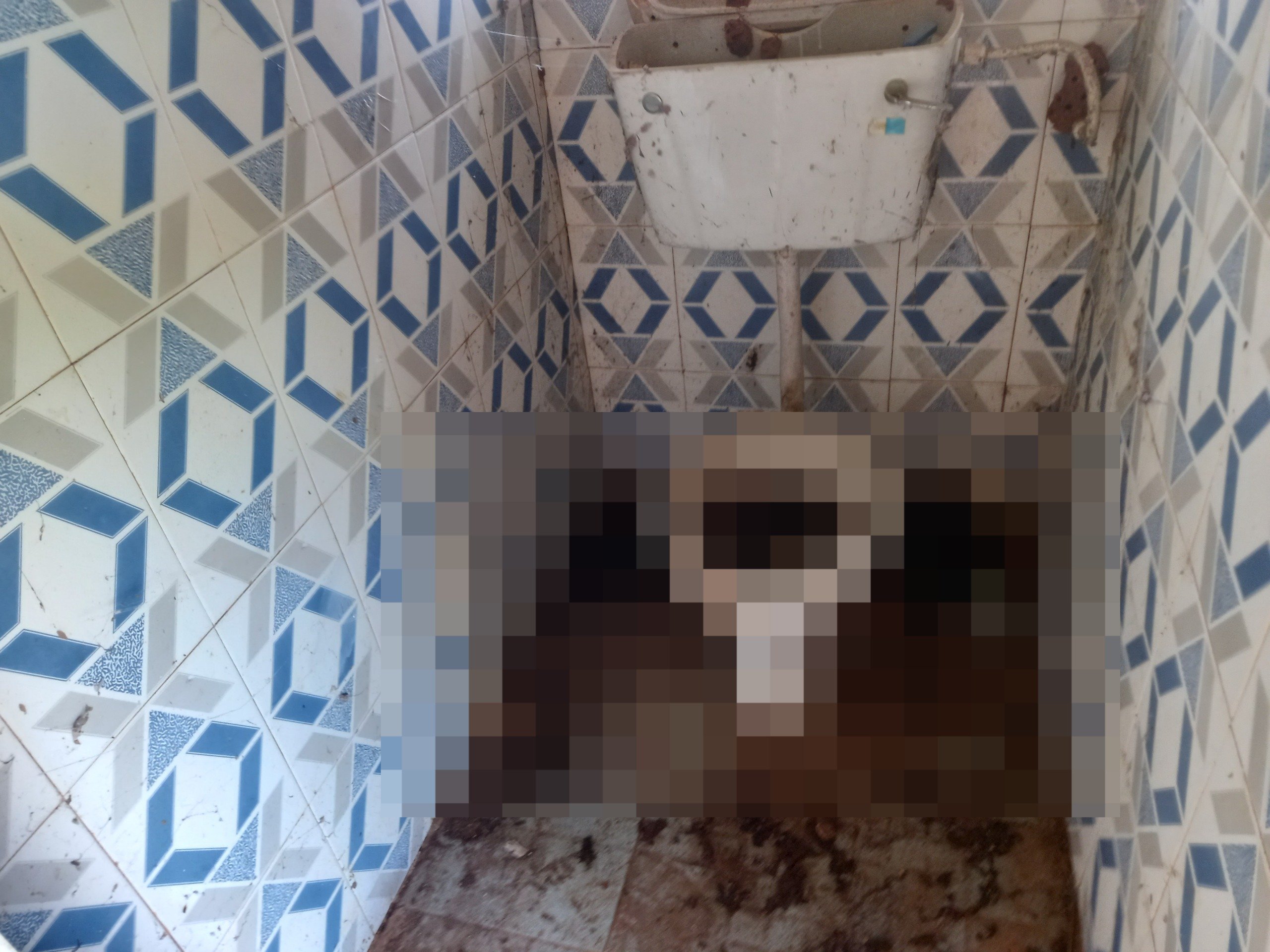
A transformer, donated to provide electricity, remains unused, its potential wasted due to lack of maintenance.
The school lacks access to electricity, forcing students to fetch water from a stream. The kitchen, a primitive set-up, relies on dried wood and charcoal, while the toilet facilities are filthy and unusable, leading to unsanitary conditions for the already vulnerable students.
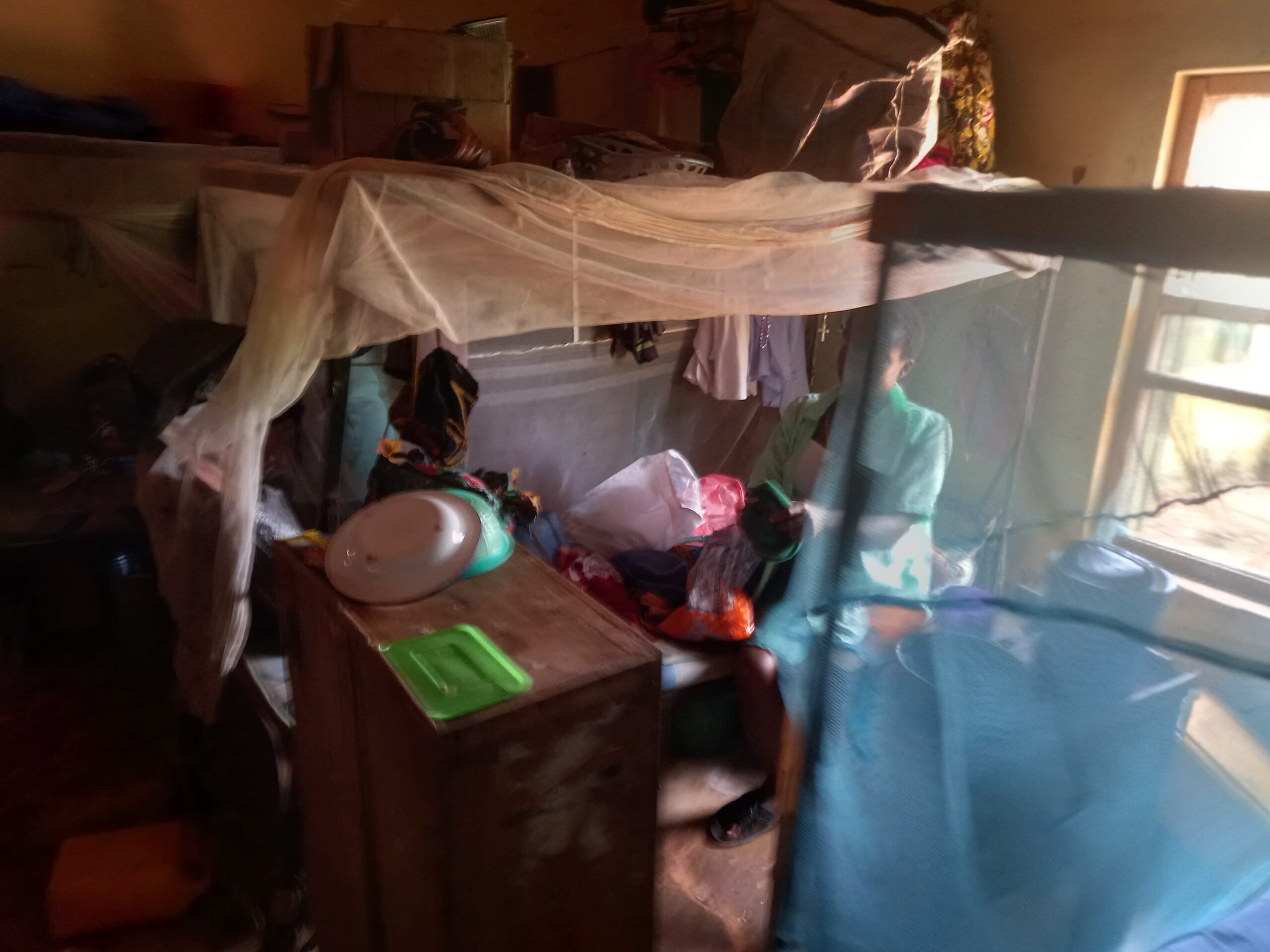
The female hostels, overcrowded and poorly ventilated, leave students exposed to potential danger. Allegations of sexual abuse and exploitation are constant threats, with some female students mute and unable to scream for help.
“There are occasions when the female students are sexually abused by some hooligans who break into the school through the bush. Some of them cannot scream because of their disability. So, it’s a difficult situation for them,” one of the supervisors in the school, who doesn’t want to be named, said.
BASIC NEEDS REMAIN UNMET
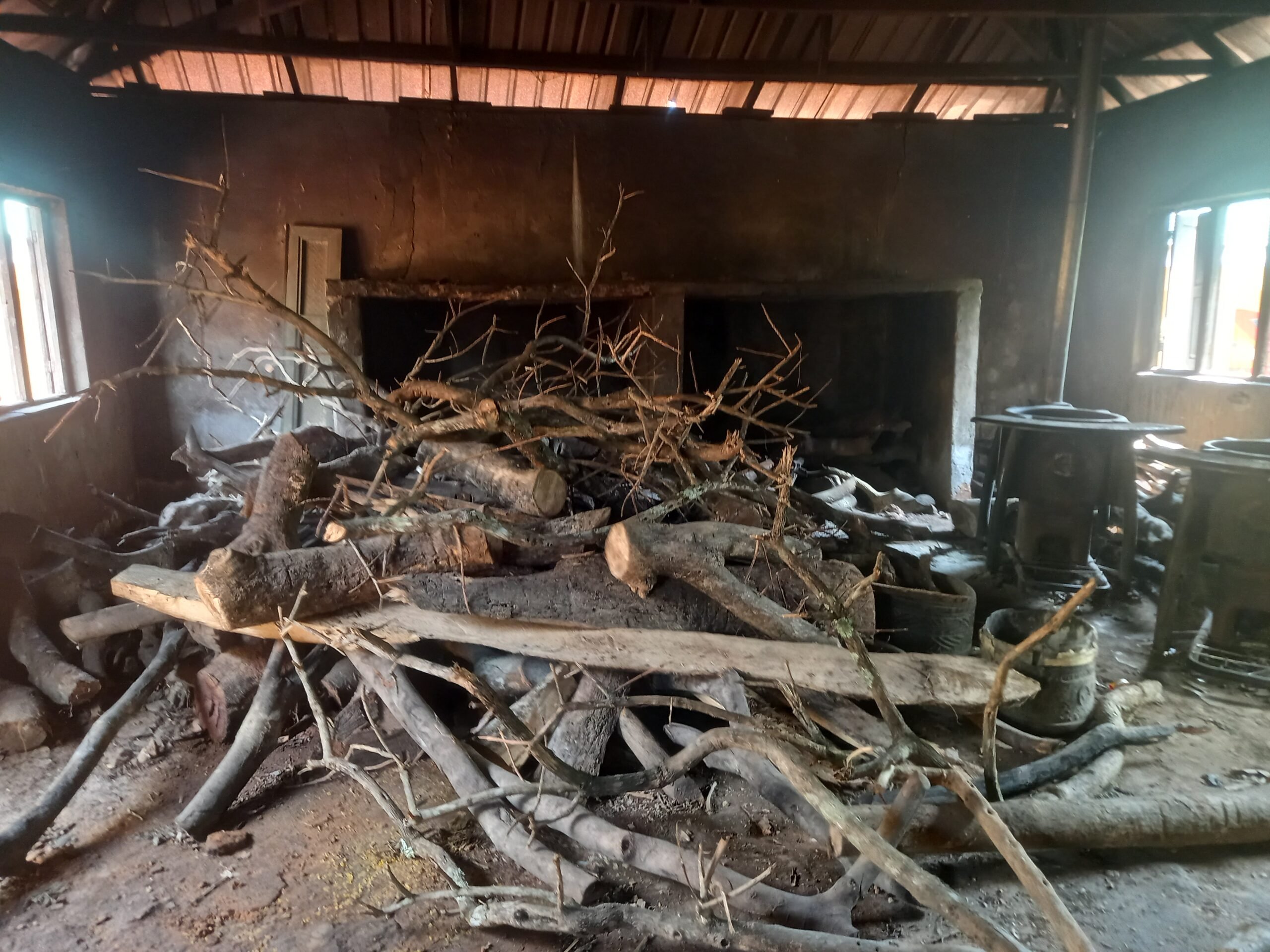
When TheCable visited the school on October 23, 2024, some of the students were just leaving for the mid-term break. But a lot of them stayed back.
Chigozie Chinwe, the school principal, said due to the rising cost of living, the school cannot afford basic things like fuel to power the generator.
She said the government has been catering to the needs of the school, adding that the government provides instructional materials, welfare and clothing for the students.
Chinwe said though the government is not relenting, the school needs the support of independent donors to keep its activities running so that the kids can live comfortable lives.
“Some parents leave the kids here as if they have forgotten about them. The school provides everything for the kids even up to their care packages. The parents and guardians only pay for the WAEC examinations. But there is only so much to do to make their lives comfortable around here,” the principal said.
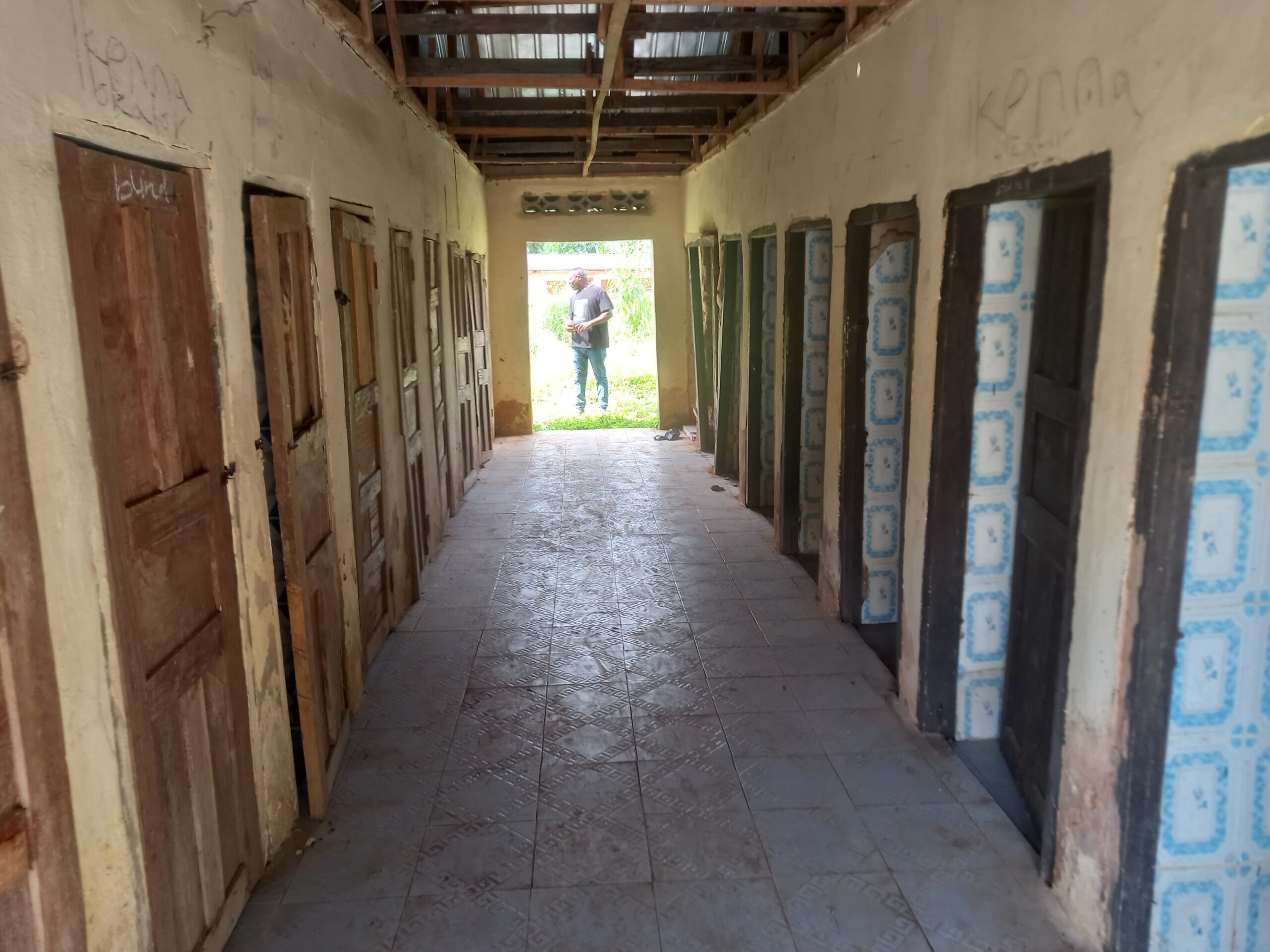
“The government provides feeding, subscription and N100,000 for instructional materials but over time, the cost of things has skyrocketed. These students depend on public donors.
“The school has not been connected to electricity since inception. There is a transformer but it has not been installed. Sometimes, the kids have to go to the stream in pairs. Without electricity, there is no way to power the tap.
“We do our best, but resources are scarce.”
REPORTING BY SAMUEL AKPAN, CLAIRE MOM, BOLANLE OLABIMTAN, DYEPKAZAH SHIBAYAN, AYOMIKUNLE DARAMOLA, AND MONSUROH ABDULSEMIU
Add a comment
